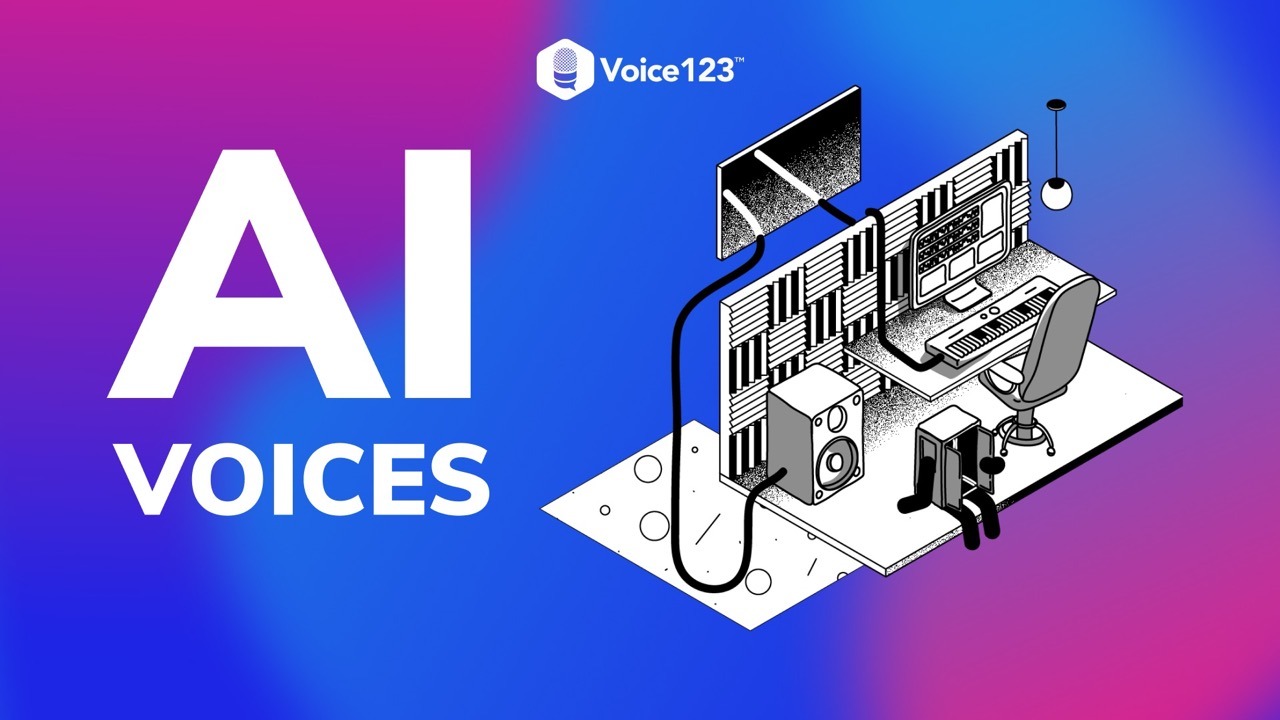
AI Voices: Crafting the Future of Voice Over with Voice123
Artificial intelligence (AI) has rapidly transformed the voice over and audiovisual industries, ushering in a new era of efficiency and innovation.
However, this has not come without significant drawbacks. The rise of AI-generated voices has sparked a wave of concern, as it threatens to displace human talent and creativity.
It’s also opened the door to a host of ethical and legal challenges. Deep fakes, pornography, unauthorized cloning, robocalls, and illegal usage are just the tip of the iceberg.
Thankfully, unions and other institutions like NAVA are working to pioneer the legislation needed for AI technology and content creators to coexist. But so should leading companies in the audio industry like Voice123. While we can not shape the laws, we can shape how this new technology is being used. After all, our mission has always been to craft the future of the voice over industry.
So, where is this industry heading? Most importantly, what are we doing to protect our voice over community while navigating this technological shift?
The Advancement of AI
AI voice technology has evolved from basic text-to-speech (TTS) systems to sophisticated voice cloning capabilities. Thanks to advancements in machine learning algorithms, AI can now mimic the subtleties of human speech with astonishing precision. While this is celebrated within the tech industry, it’s also sparked fear and uncertainty among creators.
In addition, the absence of clear ethical legislation fuels these concerns, leaving many voice actors fearful about their future.
Initiatives like the European AI Act represent a positive step forward, providing the first legal framework. However, it’s only a drop in the ocean compared to AI’s potential applications—and misapplications that are still largely unregulated.
Voice Over and the Threat of AI
The global impact of AI voices is undeniable. The 2023 SAG-AFTRA strike, the longest in history, underscored the urgency of this issue. Actors and voice actors fought to secure contracts that addressed AI’s growing role in their industry.
But just how fearful should content creators be?
If we go back a few years, innovations like smartphones, social media, and streaming services were also met with similar fears. Concerns over privacy, social interaction, and the fate of traditional media were real. Yet, these technologies enhanced global connectivity and revolutionized content consumption. So, while AI does pose a legitimate threat, it also has the potential to drive digital progress.
Ultimately, the real danger to the voice over industry isn’t AI itself—it’s how AI is developed and controlled.
Can AI disrupt the audiovisual industry?
Yes.
Can the right frameworks, best practices, and tools help us craft a future together in which AI enhances rather than replaces human talent?
Absolutely!
How Voice123 is Shaping the Future of Voice Acting
It’s clear the voice acting industry stands at a critical crossroads, with increasing gray areas and vital questions:
How do we protect voice actors’ rights? Who owns a voice once it’s digitized by AI? How can voice actors verify and safeguard their work?
That’s why we’re taking an activistic approach to shaping the future of voice over, prioritizing the rights and livelihoods of our voice actors.
That’s why we launched The Voice Authenticity Initiative!
Our first step in developing an audio content security system ensuring that voice actors can always own, access, and verify audio files.
Yes, we’re pioneering a new standard in audio security to empower creators to amplify and guarantee the authenticity of their digital content.
It all starts with Voice Credentials, an audio security tool that automatically generates a unique digital signature for every audio file uploaded to Voice123. This innovative tool has been rolled out to all voice actors’ profiles on Voice123, so go check your Voice123 proposal inbox.
In addition, we’ll be spotlighting the industry by showcasing TTS project data directly from Voice123 and the volume of signed audio files. We believe this transparency is crucial in building trust.
Every voice actor deserves to have their voice protected
So, yes, the future of voice over is under threat, and yes some things are still uncertain. But the threat is not the technology itself but rather how it is developed and who controls it.
This is why we’re taking proactive measures to give voice actors full control over their audio work and allow them to work with AI in a way that uses the technology to enhance rather than replace.
Technology powers efficiency, but it is art that harnesses this power to create something truly unique and profoundly human.
For more information on our Voice Authenticity Initiative, check out our FAQs or contact our team at help@voice123.com.